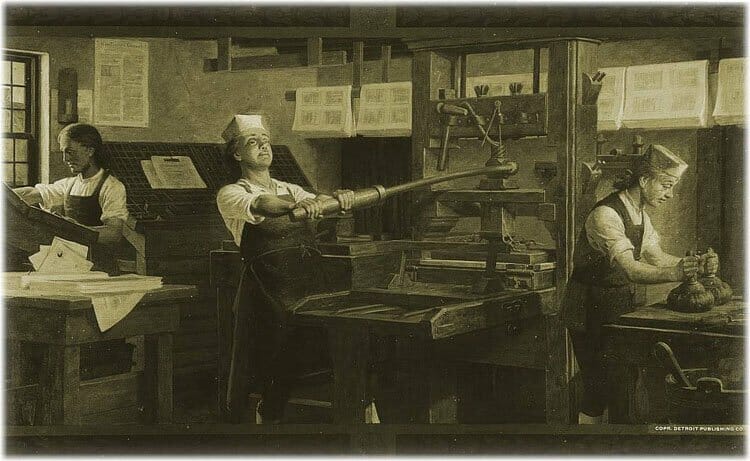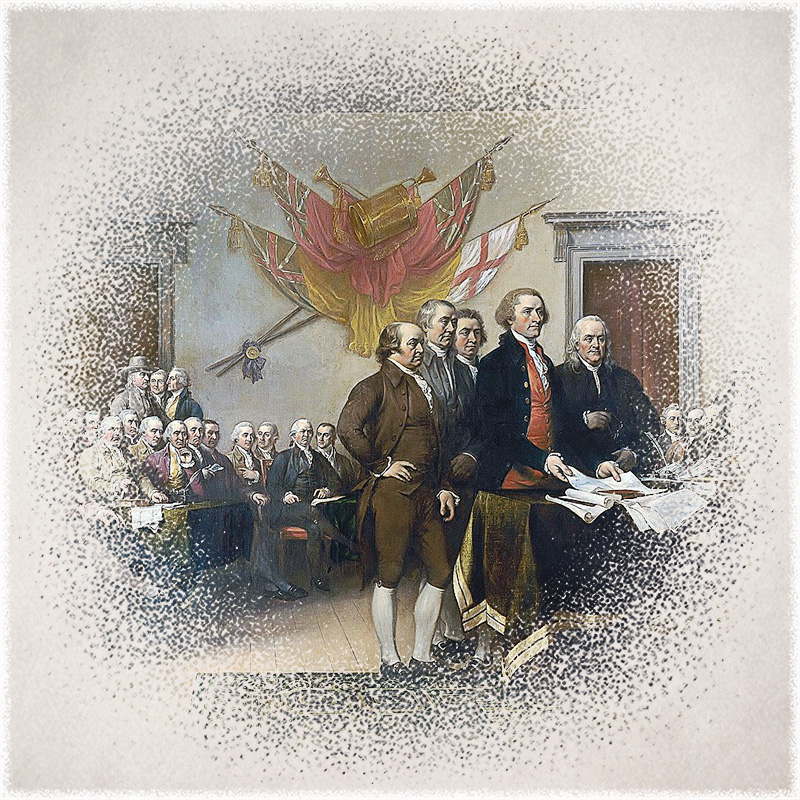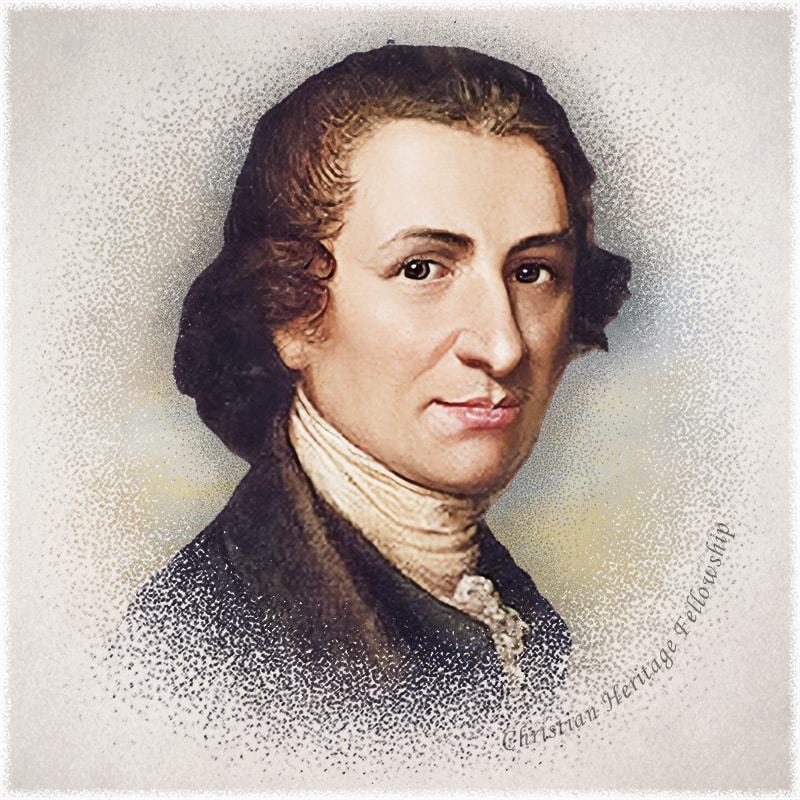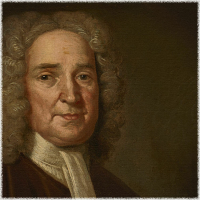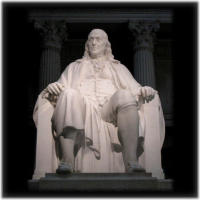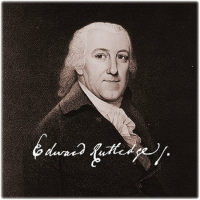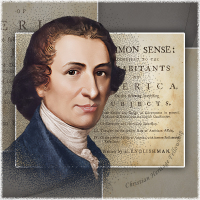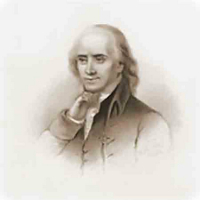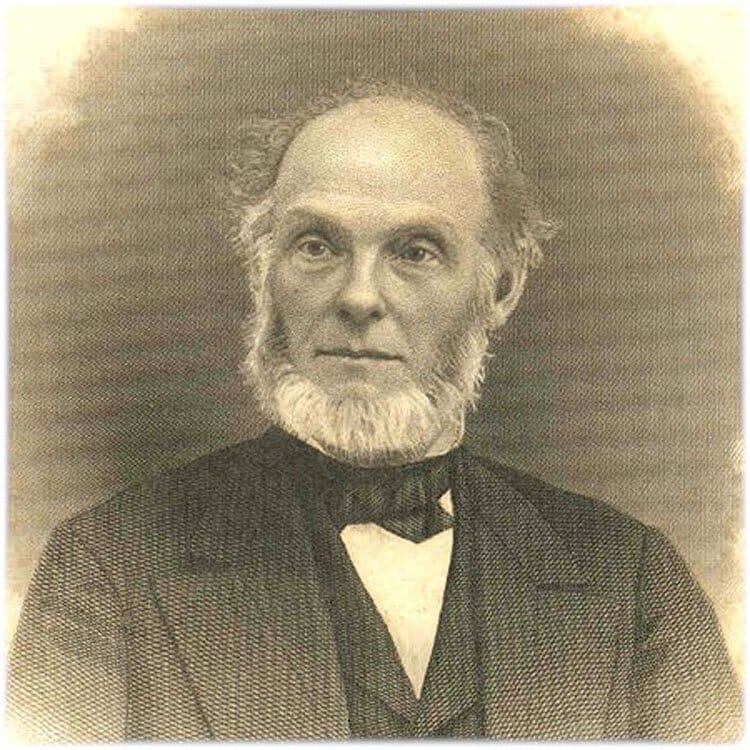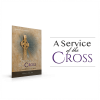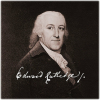Benjamin Franklin and the Bible
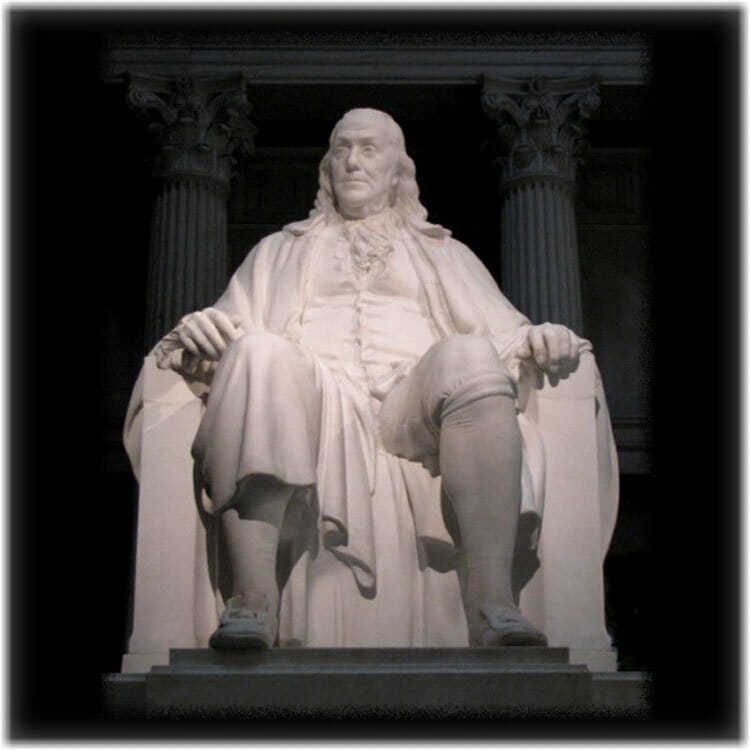
Of all of America's Founding Fathers, Benjamin Franklin and Thomas Jefferson possessed the most unorthodox Christian theology. However, their understanding of Christianity was far more orthodox than many contemporary "Christians." Neither Franklin nor Jefferson were deists, atheists, agnostics, or irreligious in any sense. Secularists who seek to deny Americans their Christian heritage have no patrons to whom they may turn for support among America's Founding Fathers—absolutely none![1] For this reason, they seek to employ Franklin and Jefferson to do their secular and irreligious bidding.Ben Franklin Bible
Benjamin Franklin was raised in a Christian home, his father, Josiah, having descended from Puritans. Franklin was born on January 17, 1706 and soon after baptized at well known Old South Meeting House in Boston, Massachusetts. Josiah and Abiah Franklin wished that their son Benjamin should become a minister of the gospel, and they began to educate him with that goal in mind, but their meager resources could not adequately supply for his preparation for the ministry, so their goal was eventually abandoned. Deserting an apprenticeship with his brother, Benjamin fled to Philadelphia, Pennsylvania where he began to invest his life's energies. Before recounting advocacy of Christianity as one of America's Founding Fathers, knowledge of an important era of his life is critical to a proper understanding of Franklin's thoughts concerning religion.
The subject addressed in this article is discussed at greater length in America's Founding Fathers and the Bible. Christian Heritage Fellowship would be honored to work with individuals, businesses, churches, institutions, or organizations to help communicate the truth concerning the positive influence of the Christian faith by providing bulk pricing: Please contact us here... To purchase a limited quantity of this publication, please click: Purchase here...
Article Contents
The Influence of Infidelity upon Franklin
In a letter to a friend in New Castle, Delaware, Benjamin Franklin graphically described the journey of his youth from Boston to Philadelphia—when fleeing from the apprenticeship with his brother. A copy of this letter made its way into the hands of the Governor of Pennsylvania, Sir William Keith, who invited young Benjamin to his mansion. A friendship arose from their first meeting, with the Governor encouraging and offering his support to Ben to establish his own business. The proposed business plan was extensive, and involved a voyage to England for materials.
Franklin made the trip, arrived in London, but to his dismay, found the promised support of Sir William Keith of little or no avail. Forced to provide for himself, Ben obtained employment as a journeyman printer in one of the important businesses in the city. Here his industry, studious spirit, punctuality, and frugality, soon won him a number of friends. To his detriment, he soon came under the influence of some irreligious infidels, among whom was Lord Mandeville. Though Ben had come under the influence of deism as early as age fifteen, he experienced first hand the abusiveness that such philosophy produces and had come to believe this doctrine produced pernicious character and was "not very useful".[2] Under the influence of these infidels, his mind was quickly tainted with irreligious infidelity, which he published in the form of a pamphlet. Later in life, however, he regretted having written this pamphlet and candidly condemned his immature musings. Though he lamented the content of this pamphlet, the influence of Lord Mandeville and his fellow infidels changed Franklin's views concerning Jesus Christ—but that Franklin quickly forsook his brief flirtation with deism is evident from his emphasis upon God's providence or God's continuing work in the world.[3]
The Bible and Pennsylvania's First Constitution
That Franklin recognized the importance of the role of Christianity in government may be demonstrated by his role in the composition of Pennsylvania's first constitution. In 1776, Franklin was appointed to the Committee of Five[4] to draft a Declaration of Independence from King George III and the British Isles; he voted for its adoption, and signed it with most of the other delegates on the second of August. Soon after this, a convention was called in Pennsylvania for the purpose of organizing the state government in accordance with the recommendation of the Continental Congress. He was chosen President of Pennsylvania's Constitutional Convention, and his wisdom was manifested in what was produced by the convention. Again, the Christian convictions of Franklin and the other delegates that helped prepare Pennsylvania's first constitution were plainly engrafted into the text. Consistent with the patents, charters, and legal foundations of all Thirteen Colonies prior to the American Revolution, Pennsylvania's constitution reflected its Christian origin. On September 28, 1776, Franklin—as president of the convention—signed Pennsylvania's first constitution, Section 10, which legislated a Christian test for all who would occupy a seat in Pennsylvania's assembly:
And each member, before he takes his seat, shall make and subscribe the following declaration, viz:
I do believe in one God, the creator and governor of the universe, the rewarder of the good and the punisher of the wicked. And I do acknowledge the Scriptures of the Old and New Testament to be given by Divine inspiration.
And no further or other religious test shall ever hereafter be required of any civil officer or magistrate in this State.
...
Passed in Convention the 28th day of September, 1776, and signed by their order.
BENJ. FRANKLIN, Prest. [5]
The expectations of this portion of Pennsylvania's constitution ensured that only professing Christians—or those who held to these important Christian doctrines—could expect to hold a seat in Pennsylvania's state legislature. Unfortunately, to acknowledge "the Scriptures of the Old and New Testament to be given by Divine Inspiration" is more than many pastors and Professors at Christian institutions are willing to profess in the present generation. Because other newly developed state constitutions had similar doctrinal statements and standards, the Founding Fathers were far more "Christian" than many professing the faith today.
Contrary to what secularists in America now argue, Franklin saw little influence of unbelief in its various secular manifestations in his day; rather, he saw the flourishing of various Christian denominations. In 1782, he developed a brief description of what those who anticipated moving to America could expect to find there. In his description of America's religious life and God's providence in the life of the nation, he wrote:
. . . bad examples to youth are more rare in America, which must be a comfortable consideration to parents. To this may be truly added, that serious religion, under its various denominations, is not only tolerated, but respected and practiced. Atheism is unknown there; infidelity [deism] rare and secret; so that persons may live to a great age in that country, without having their piety [Christian scruples] shocked by meeting with either an atheist or an infidel. And the Divine Being seems to have manifested his approbation of the mutual forbearance and kindness with which the different Sects [Christian denominations] treat each other, by the remarkable prosperity with which He has been pleased to favor the whole country.[6]
Franklin Rejects Paine's Infidelity
If it may be shown that Benjamin Franklin resisted irreligious secularism and did what was in his power to dissuade and reject such efforts, then—since Franklin was comparatively less orthodox in his Christian beliefs than other Founding Fathers—it is reasonable to believe that other Founding Fathers who were more traditional than Franklin would be more eager to advocate the influence of Christianity. And in fact, Mr. Franklin has provided us with such evidence.
Thomas Pain had commended himself to the American patriots with the anonymously published work, Common Sense, on January 10, 1776. He had composed Common Sense in a style readily understood by the average American colonist. In fact, Paine structured Common Sense as if it were a sermon and relied upon biblical references to help argue his case. He initially intended to name the work Plain Truth but his good friend, Dr. Benjamin Rush, was responsible for the title under which the work commended itself to the American Colonies.
Paine left America following the Revolution, returning first to England before traveling to France in 1790 to witness the French Revolution first-hand. Here, he was imbued with the irreligious infidelity of Voltaire, Rousseau, and other French "Intellectuals." It was this influence that gave rise to Paine's most irreligious writings. In 1794, Thomas Paine published his infamous work, Age of Reason, in which he elevated "free thought" and the principles of deism while he attacked Christianity and the providence of God in the world—something Franklin and the American Founding Fathers vigorously rejected.
Paine had sent a manuscript copy of this work to Mr. Franklin before Franklin's death. After reading it, Mr. Franklin responded, urging him not to publish it. As he closed his letter to Paine, Franklin wrote,
…think how great a portion of mankind consists of weak and ignorant men and women, and of inexperienced, inconsiderate youth of both sexes, who have need of the motives of [the Christian] religion to restrain them from vice, to support their virtue, and retain them in the practice of it till it becomes habitual, which is the great point for its security. And perhaps you are indebted to her originally, that is, to your religious education [of your youth], for the habits of virtue upon which you now justly value yourself. You might easily display your excellent talents of reasoning upon a less hazardous subject, and thereby obtain a rank with our most distinguished authors. For among us it is not necessary, as among the Hottentots, that a youth, to be raised into the company of men, should prove his manhood by beating his mother.
I would advise you, therefore, not to attempt unchaining the tiger [or publish this work], but to burn this piece before it is seen by any other person; whereby you will save yourself a great deal of mortification by the enemies it may raise against you, and perhaps a good deal of regret and repentance. If men are so wicked with religion, what would they be if without it. I intend this letter itself as a proof of my friendship, and therefore add no professions to it; but subscribe simply yours,
B. Franklin[7]
Though influenced as early as his mid-teens by deism, infidelity, and irreligion, Benjamin Franklin had come to realize it only produced heartache and misery.[8] In world history, where have agnosticism, atheism, deism, and other forms of irreligion produced wellbeing and a truly progressive society? Nowhere!
Far from attempting to publically marginalize the Bible and the Christian faith, Franklin—like all of America's Founding Fathers—believed the Bible and Christianity which arises from it must be publically expressed and observed. One of Franklin's sayings reveals that he believed the Bible produced the genius that provides stability and progress to free governments and to the diffusion of liberty:
A Bible and a newspaper in every house, a good school in every district, all studied and appreciated as they merit, are the principal supports of virtue, morality, and civil liberty.[9]
To further understand Franklin's appreciation for the Bible and the Christian religion, a thorough understanding of his influence upon the origin of Pennsylvania State University and the role he encouraged ministers and the Christian faith to play in the life of the institution must be understood—something beyond the scope of this article.
America deserves to know its true heritage.
Please contribute today!
"Anchor Elements" are concepts, events, individuals, terms, or other important components that are featured in this article and which act as reference points for use in other articles throughout our site.
No index entries found.
[1] Given the fact that Thomas Paine based his book Common Sense upon the Bible, it is not possible to refer to Paine as a secularist at the point he wrote and published this book. Only after Paine traveled to France and participated in the irreligious blood-letting French Revolution did he advocate secularism in his books Rights of Man (1791) and Age of Reason (1793-1794). Upon espousing his secularism following his return to America, Paine was rejected by the Founding Fathers because of his irreligion.
[2] Benjamin Franklin, The Autobiography of Benjamin Franklin with Notes and a Sketch of Franklin's Life from the Point Where the Autobiography Ends, Drawn Chiefly from His Letters (Boston: Houghton, Mifflin and Company, 1888), 78.
[3] See Franklin's discussion of God's work in the world in his lecture, "A Lecture on The Providence of God in The Government The World," in Morris, Civil Institutions of the United States, 131-134.
[4] The Committee of Five was composed of John Adams of Massachusetts, Benjamin Franklin of Pennsylvania, Thomas Jefferson of Virginia, Robert R. Livingston of New York, and Roger Sherman of Connecticut.
[5] Lillian Goldman Law Library, "Constitution of Pennsylvania - September 28, 1776," (http://avalon.law.yale.edu/18th_century/washing.asp.
[6] "Benjamin Franklin, Information to Those Who Would Remove to America," The Founders' Constitution (http://press-pubs.uchicago.edu/founders/documents/v1ch15s27.html, April 17, 2015).
[7] Jared Sparks, The Works of Benjamin Franklin, (Boston: Tappan, Whittemore, and Mason, 1840), 10:281-282; quoted in "Benjamin Franklin's letter to Thomas Paine," WallBuilders (http://www.wallbuilders.com/libissuesarticles.asp?id=58, April 15, 2015).
[8] Franklin, 77-78.
[9] Morris, Civil Institutions of the United States, 134.

